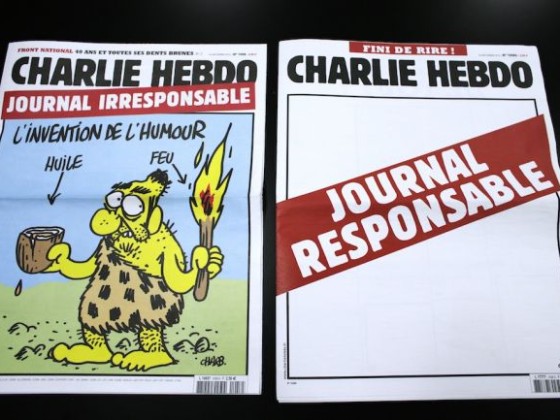“This might sound a bit pompous, but I’d rather die on my feet than live on my knees.”
The words came from Stephane Charbonnier, aka Charb, cartoonist and director of the French satirical weekly Charlie Hebdo, in 2012 after a firebomb attack on the paper’s Paris office.
On Wednesday Charb was among 12 people killed during a terrorist attack on Charlie Hebdo by masked gunmen crying “God is Great” in Arabic as they gunned down journalists, cartoonists and police officers.
